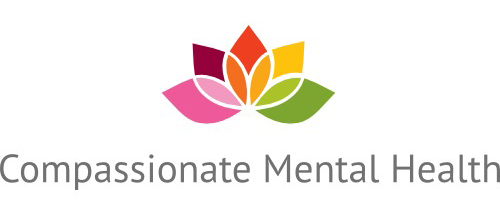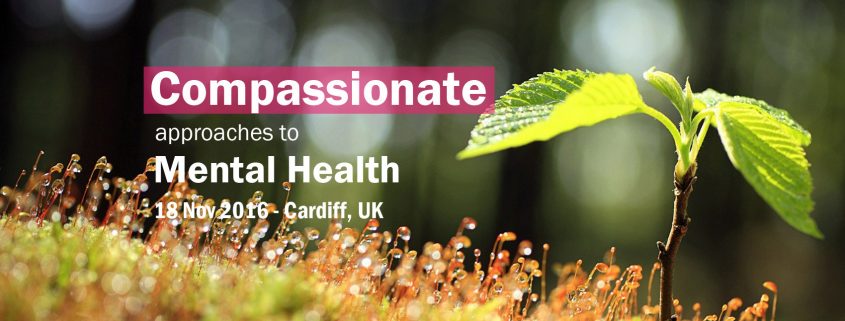Grieving Every Day by Elisabeth Svanholmer
As far back as I can remember I have experienced times of intense sadness. Feeling like a heavy weight is dropped into my solar plexus, and at the same time as if some creature is clawing at my insides.
It makes me feel exhausted and restless at the same time; exhausted with the unexplainable emotional pain and too restless to make it shift.
I’m too mentally restless to understand it, figure it out and come up with a way forward. And at the same time physically restless, because the pain is so uncomfortable. Restlessness is accompanied by a sense of loss, violence and meaninglessness. As if I’m too empty and too full at once.
When I was younger the big question was always “why?”:
Why am I feeling like this? What have I done? What have I not done? What have I done wrong? Is it me? Is there something wrong with me? Why would I be feeling like this unless I’ve done something wrong?
I would be looking for what I might have missed – scrutinise things I’d done, choices I’d made and how I’d treated people.
Letting Sadness Be
As I grew older I became more aware of this individualised idea of happiness that seems to have rooted itself in our western minds. That we alone are responsible for our happiness; that happiness is something we can just choose, something that happens if we think the right thoughts or chant the right chants. Many seem obsessed with happiness, how it’s achieved and how to spread the happiness vibe. It’s a bestseller.
Grief, sadness and pain doesn’t seem to have much value. They are responses to be gotten over or fixed. Find the cause and get it sorted. Pain is just a messenger about something you need to look at. Then you can be happy, be your true self free of pain. Happiness is the way and we can all be happy if we want to…
With all this in mind I kept scrutinising myself. What was I doing so very, very wrong? How to change my thoughts to change my world? Its just mind over matter, right?!
I used to hide when I felt sad. Nobody wants to be around a buzz killer, a party pooper. I thought people didn’t like my philosophical questions, my ponderings about the point of it all, my quiet staring into space and unenthusiastic responses. Also I just felt too tired to face people.
People often want to help and relieve pain and this would leave me with a choice between two evils; pretend people were helping me to make them feel better, or be honest and make others feel restless and sad too. It can be a real dilemma so I chose to not be around people, because I would feel responsible when my moods and behaviour made others feel powerless.
During my teenage years I was quite sure I wouldn’t be able to keep surviving my intense states of sadness and meaninglessness. But now I’m 35 and have made it through countless states like these. And so I’ve started thinking differently about them.
From isolation to interconnection
Realising I am not an island was one of the first big things to help me change my approach. I don’t know why we are being sold this idea that we are separate and disconnected. I know it feels like that at times, and I know nobody is ever going to experience me or the world the way I do. But that doesn’t make me an isolated being. It just makes me unique.
Like everybody, I am unique. But we are all still made from the same matter – or clay as John O’Donohue calls it. We may be islands but we are all connected by water, by this world we are living in. Connected by our humanness; by bones, flesh and blood, by birth, illness and death. Once I realised this I started wondering whether this sadness was truly just mine.
The wonderful German word “Weltschmerz” can be understood in two ways. Either it could mean that you feel overwhelmed and dissatisfied with the world; that the world – or your view of the world – is causing you pain. Or it could mean that you are feeling the pain of the world.
Believing that everything is interconnected and inter-existing makes my pain not just mine. My pain may not start with me. Sometimes it does yes, but more often than not the pain I feel comes from my relationships with people around me, from being aware of pain in their lives. And some states of sadness are about the world, about feeling the grief of living beings across the planet, the despair and vulnerability. Deeply sensing the frustration of people fighting for a fairer world or people trying to raise awareness about the impact we have on the environment.
The importance of rituals
There is so much pain in the world. So much pain.
Many of us have lost the rituals and containers that could help us feel less overwhelmed in the face of this pain. Rather than thinking of ourselves as interconnected and face the pain of the world, we think of pain as having an isolated cause that the individual needs to deal with. Or we simply try to distract and numb ourselves from the pain.
So what to do when one feels the pain of the world?
Probably this is one place where religions of different kinds have something to offer. Loving prayers and getting together with others to remind ourselves that there may be something bigger than us out there. Choosing to trust in a higher power can alleviate some of the overwhelm.
Or nurture a spiritual practice; some people find ways to protects themselves against feeling the pain and others find ways to bear it.
Or become an activist.
I don’t have a religion and I don’t have the discipline to uphold a spiritual practice. I can’t really see myself as an activist.
A Daily Practice
So some years ago I decided to try and grieve everyday. To honour the pain and the sadness. Because what seemed to happen was, that I would be relieved when I didn’t feel the sadness and then feel resentment when it came back. So I thought that if I stayed in touch with it and felt it on a regular basis it might stop coming in these intense waves.
It sounds good in theory. But then life happens and I forget or I change my priorities. So sadness takes a backseat for a while, but I can’t stop being who I am. And I can’t stop feeling life so intensely. So sooner or later I am forced to feel the pain again. And I think to myself: What happened to grieving everyday? What happened to being in touch with the pain of the world and honouring it?
I am coming through a time of busyness to a time of more calm living, and now sadness has hit me square in my belly. It’s so intense I forget all I’ve learned about this pain. I feel lost and overwhelmed.
My mind gets restless but a voice inside says: Write about it. Write! And so I write and remember. The pain, the many ways I’ve tried to deal with it throughout my life. I remember interconnectedness and I remember how much I feel everything.
I remember how I’ve been wanting to write about grieving everyday for over a year.
And here I am writing. Grieving. And remembering why I believe in grieving everyday.
Embracing suffering
Some pain is personal and individual, and recognising individual pain and its cause can be very important. But some pain might be universal, and this kind of pain may need a different approach. Overall I believe we need to rethink our relationship with pain and sadness, and not see them as villains to be conquered or avoided.
The film “Inside Out” tells a story about how important sadness is for our humanness, and how it can help us connect with each other. Being happy and enthusiastic is valuable, but being in touch with pain and showing vulnerability is equally important.
We need to honour our shared pain – all that we’ve lost, all the hurt we’ve inflicted on each other and the planet. I believe that if we are in touch with pain and allow ourselves to grieve, it can help us find ways to live more harmoniously in our communities.
Hear Elisabeth speak on November 18th in Cardiff at Compassionate Approaches to Mental Heath – a one day experiential event designed to inform, inspire and empower people living and working with mental distress.
Please book now to join us in Cardiff. Limited £35 tickets – sponsored by Welsh mental health and wellbeing charity Gofal – are available for people with personal experience of mental health issues, and their supporters.




Leave a Reply
Want to join the discussion?Feel free to contribute!